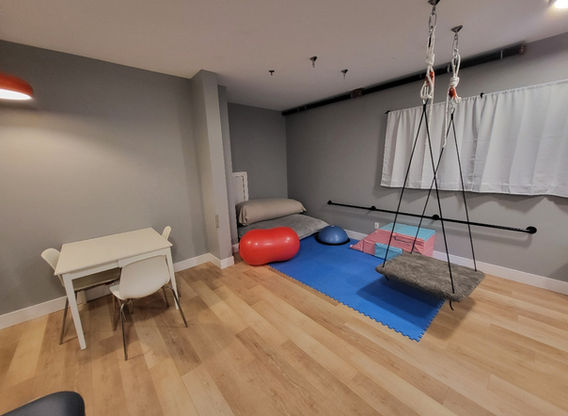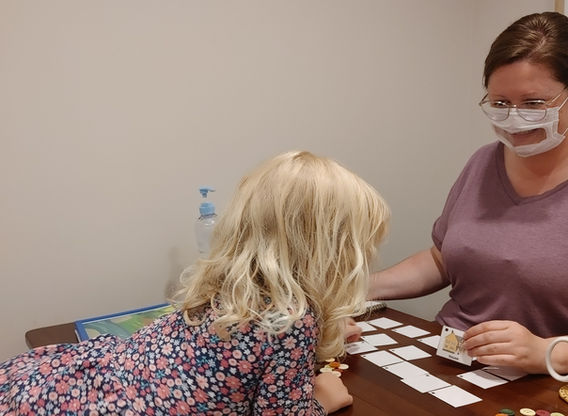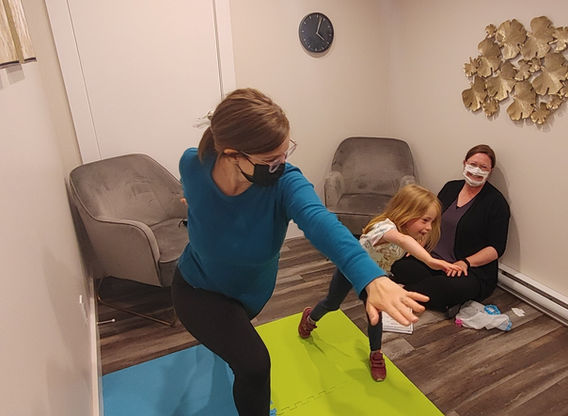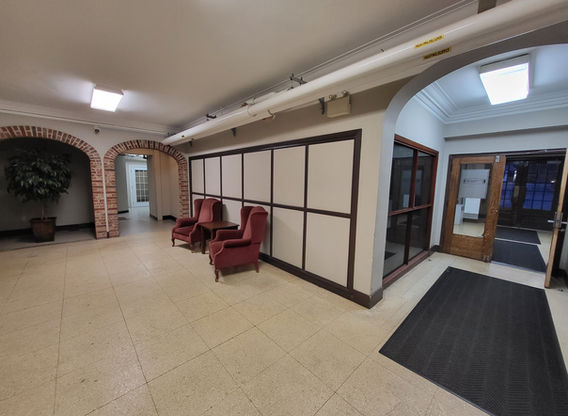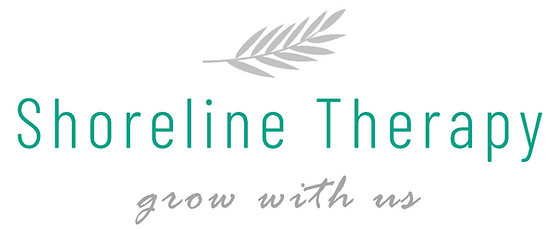
About Shoreline

Values & Mission
Shoreline Speech Therapy at Paddlers Cove was established in July 2018. From 2018 to 2022 it grew from a sole practitioner practice to a group practice. This included moving into a bigger office with multiple treatment rooms to accommodate our growth and to continue to offer in-person services through the COVID-19 pandemic.
By the beginning of 2023 we had moved into our third and final home at Paddlers Cove on the main floor. This move enabled us to be more accessible and to again expand our clinic space. We changed our name to Shoreline Therapy and began to offer a greater range of services, including occupational therapy and literacy tutoring. In November 2023 we also began offering select SLP services in the valley region, eventually setting up a permanent office in Kentville by the spring of 2024.
Our office is also home to complimentary independent practices. Dr. Kelly Aminian is a neurologist who works with adults. Dr. Magdalena Lysenko of Driftwood Psychology is a psychologist who works with children with different learning needs.
We strive to offer quality interprofessional services for clients of all ages. We also aim to foster a positive work environment in which our providers can thrive professionally and personally.
Our Values
Excellence, integrity, evidence-informed practice, dignity.
Our Mission
-
To provide high quality clinical services.
-
To provide options for services that meet a variety of individual and family needs.
-
To contribute to knowledge about communication disorders among the public and other health professionals.
Our Clinicians and Tutors
Speech-Language Pathology
Speech-language pathologists (SLPs) are the health and education professionals who work with people with communication and swallowing disorders and differences when there is an impact on the life of the person (e.g., being understood by others, understanding others, reading, swallowing safely). They provide assessment, diagnosis, support, and treatment in service of people of all ages with communication difficulties.
Learn about our speech-language pathologists here.
Occupational Therapy
Occupational Therapists are health professionals who work with children and adults facing physical, cognitive, emotional, or social barriers to functioning in daily life in their self-care (e.g., dressing, moving around, eating), being productive (e.g., school, work, community participation), and engaging in leisure activities. They are involved in the identification of these barriers to functioning, referral to other professionals for further evaluation and/or diagnosis of specific disorders (e.g., psychology and physiotherapy), and treatment to improve functioning.
Learn about our occupational therapists here.
Tutoring
Shoreline's literacy tutors are either licensed teachers with experience providing literacy supports at school or have backgrounds in linguistics and/or psychology (i.e., undergraduate degrees) and are trained directly by our speech-language pathologists. This educational background provides them with theoretical knowledge that is relevant for literacy programming.
Shoreline's math tutor is a licensed teacher with experience supporting students with diverse learning needs.
Tutors are selected based on their educational background, interest in delivering quality programming, and ability to collaborate effectively within an interprofessional team with our speech-language pathologists and occupational therapists.
Learn about our tutors here.
Our Offices
Dartmouth
Our main office is located in Dartmouth at Paddlers Cove on Lake Banook. We offer SLP, OT, and tutoring at this location to all ages.
Kentville
Shoreline's team member Stephanie Tuck, SLP, is available on Tuesdays and Thursdays from 11am-7pm in Kentville at the Main Street Station Building (325 Main Street). Additional availability will be added in the fall of 2025.
Services are available in these areas:
-
children: speech sound development, language development, literacy
-
English and French
Telehealth
Depending on the nature of the client's needs, services are available virtually for SLP, OT, literacy tutoring, and math tutoring. SLP and OT assessment is typically done in person prior to starting virtual support sessions.
Services are typically delivered via Jane Telehealth.














